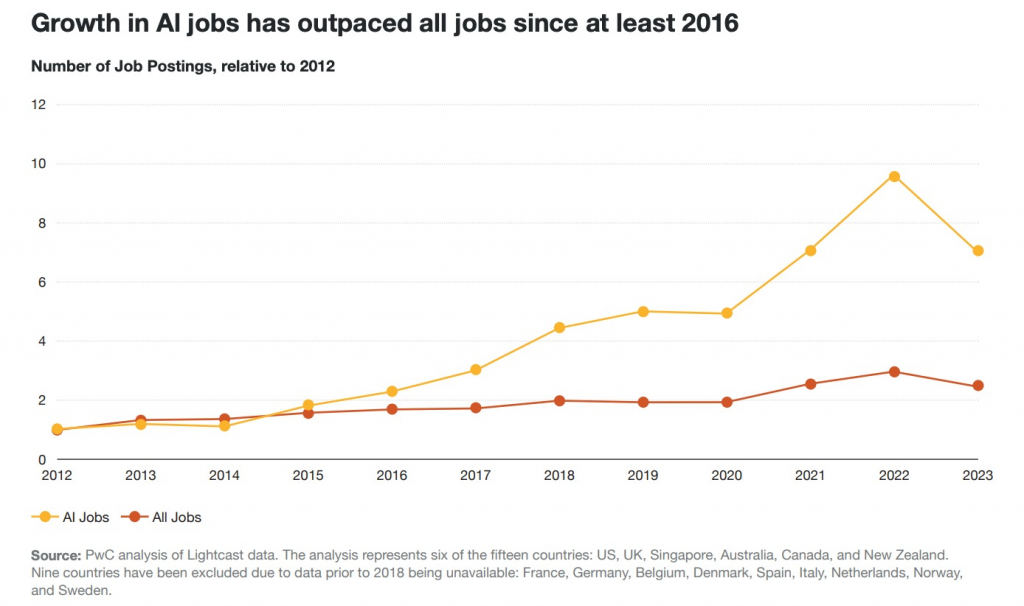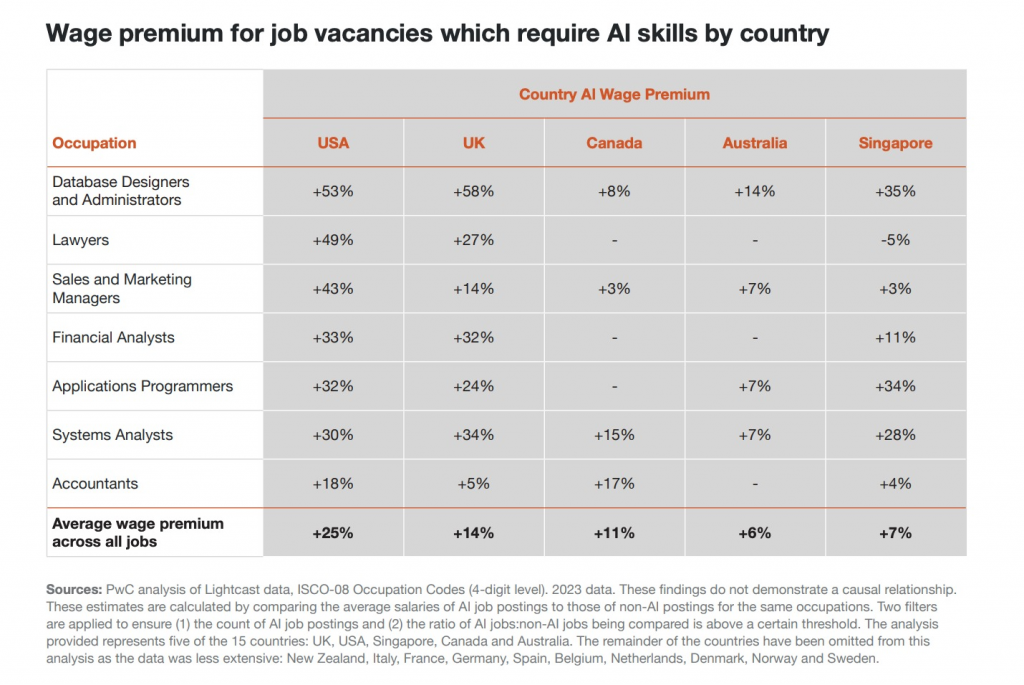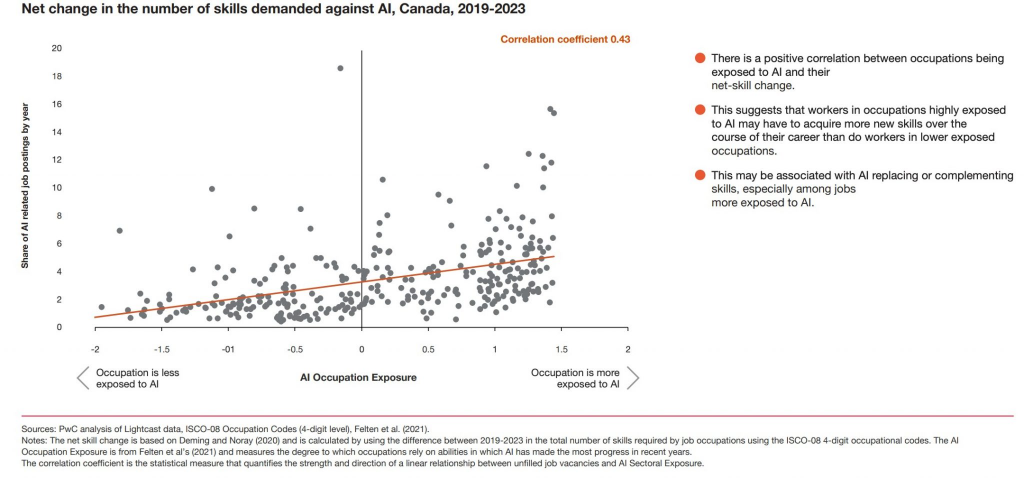PwC has just released its first Global AI Employment Barometer 2024. This report analyzed over half a billion job postings in 15 countries. Productivity, wage increases, job growth… Here are the 5 key highlights.
1- The number of AI job postings is increasing 3.5 times faster than overall recruitment postings.
First insight: today, there are seven times more job postings requiring specialized AI skills (like machine learning) than in 2012. Moreover, since 2015, these jobs have grown faster than overall job postings, with a peak reached in 2022.

In Canada, there are over 25,000 positions requiring AI skills, which is nearly 1% of all job postings.

2- A predominance of AI growth in so-called intellectual professions
The study reveals that the sectors of so-called intellectual professions are experiencing the fastest growth in roles requiring AI skills. In financial services, the proportion of these roles is 2.8 times higher compared to other sectors, followed closely by professional services with a rate nearly three times higher, and the information and communication sector where the demand is multiplied by five.

3- A wage advantage of up to 25%
The results also highlight economic opportunities for employees: in the five major job markets where salary data is available (United States, United Kingdom, Canada, Australia, and Singapore), jobs requiring AI skills offer an average wage advantage of up to 25%.
In the United States, for example, this can vary from 18% for accountants, to 33% for financial analysts, 43% for sales and marketing managers, and 49% for lawyers.

4- Productivity growth nearly five times higher in sectors most exposed to AI
The barometer’s results illustrate the positive effects of AI on the labor market and productivity. The sectors most exposed to AI – financial services, information technology, and professional services – are experiencing labor productivity growth nearly five times higher than less exposed sectors.

For many economies facing labor shortages and low productivity growth, the results underscore optimism about AI, as the technology represents an opportunity for economic development, job creation, and the creation of new industries. However, the results show that employees will need to acquire new skills, and companies will need to invest in their AI strategies if they want to accelerate their development,” summarizes Pauline Adam-Kalfon, Partner in charge of business transformation activities, PwC France and Maghreb.
5- The emergence of new skills demanded in the market
69% of business leaders worldwide expect AI to require new skills from their employees (this figure rises to 87% among CEOs who have already deployed AI, according to PwC’s 2024 Annual Global CEO Survey). The skills demanded by employers in professions more exposed to AI are evolving 25% faster than in those less exposed.

The road seems still long. Only 25% of Canadian workers (compared to 36% globally) say they have used generative AI tools at least once a month at work over the past year. Half (50%) of Canadian workers (compared to 37% globally) have never used it.
When asked about their reluctance to adopt generative AI, 28% of them believe it would not be beneficial for their careers, while 26% say they do not know how to use it.

Methodology
PwC’s new AI Employment Barometer uses half a billion job postings from 15 countries to examine the impact of AI on jobs, skills, wages, and productivity.




